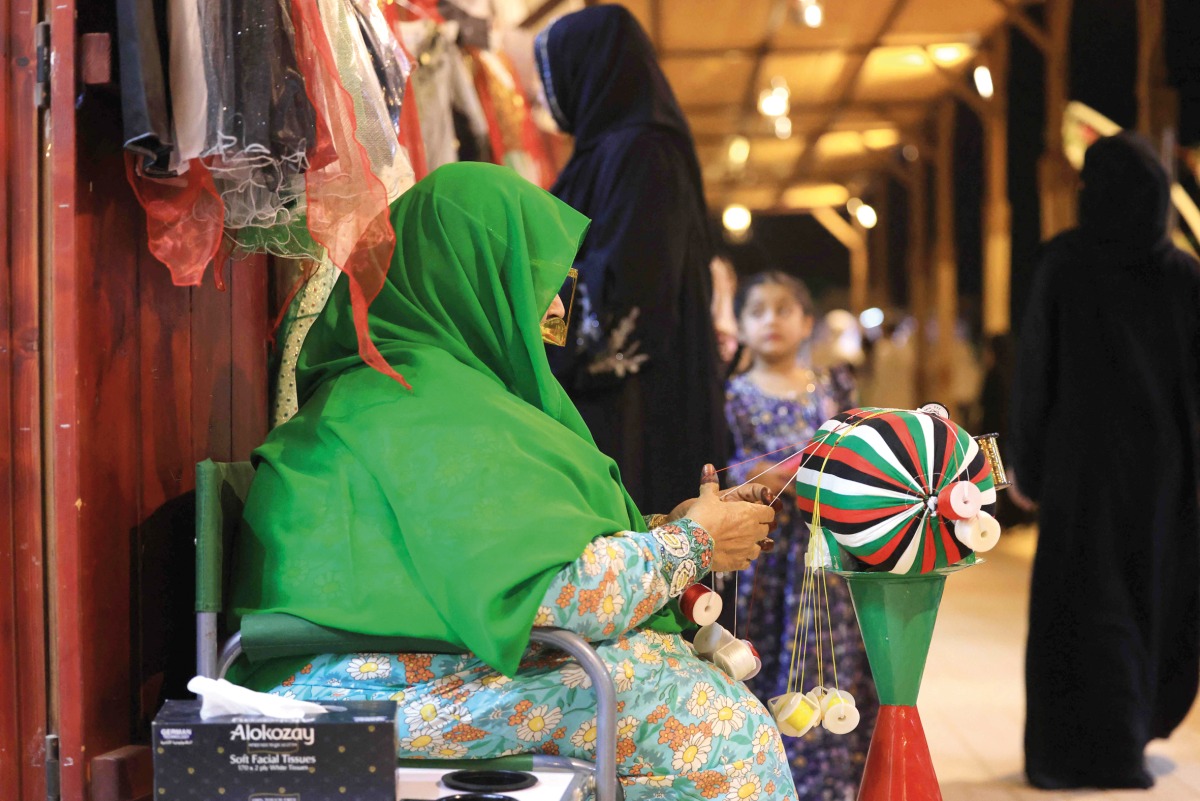The traditional Emirati craft of Al Talli, a hand-weaving technique used to create vibrant ribbons for clothing and accessories, is facing the threat of extinction in the fast-paced modernization of the United Arab Emirates. Mariam Al Kalbani, a 70-year-old craftswoman, is dedicated to preserving this ancient craft by training young Emirati women in the art of Al Talli. With roots in Emirati heritage and history, Al Talli is recognized by UNESCO as an Intangible Cultural Heritage of Humanity. Through her training sessions, Kalbani aims to pass on the skills and traditions of Al Talli to the next generation, ensuring it does not disappear.
The intricate process of Al Talli involves weaving together threads, beads, ornaments, and even precious metals like gold. The designs can range from simple six-thread patterns to more complex creations with up to 50 threads. For aspiring craftswomen like Reem Al Ketbi, learning Al Talli is a way to connect with her Emirati identity and appreciate the rarity and uniqueness of this traditional art form. While the exact origins of Al Talli remain unknown, the craft has been passed down through generations, preserving Emirati cultural heritage and traditions.
While some young Emirati women like Ketbi are intrigued by the beauty and significance of Al Talli, many are more focused on modern pursuits in the digital age. However, efforts are being made by UAE authorities to support and promote traditional crafts like Al Talli. By licensing certified experts and organizing training courses, the government aims to prevent the disappearance of these cultural treasures. Aisha Al Dhaheri from the Department of Culture and Tourism in Abu Dhabi emphasizes the importance of preserving these crafts, not only for their historical value but also out of love for the country.
As older generations of Emiratis like Kulthum Al Mansouri braid Al Talli designs at heritage festivals, they express concerns about the declining interest among young women in learning these traditional crafts. With the Emirati population representing only a small percentage of the country’s inhabitants, the challenge lies in passing on these skills to future generations who are more focused on modern technologies than ancient traditions. Despite these challenges, craftswomen like Al Kalbani and Al Mansouri remain determined to keep the art of Al Talli alive, recognizing its significance in preserving Emirati culture and heritage. Through their dedication and efforts, they hope to ensure that Al Talli continues to thrive for years to come.










